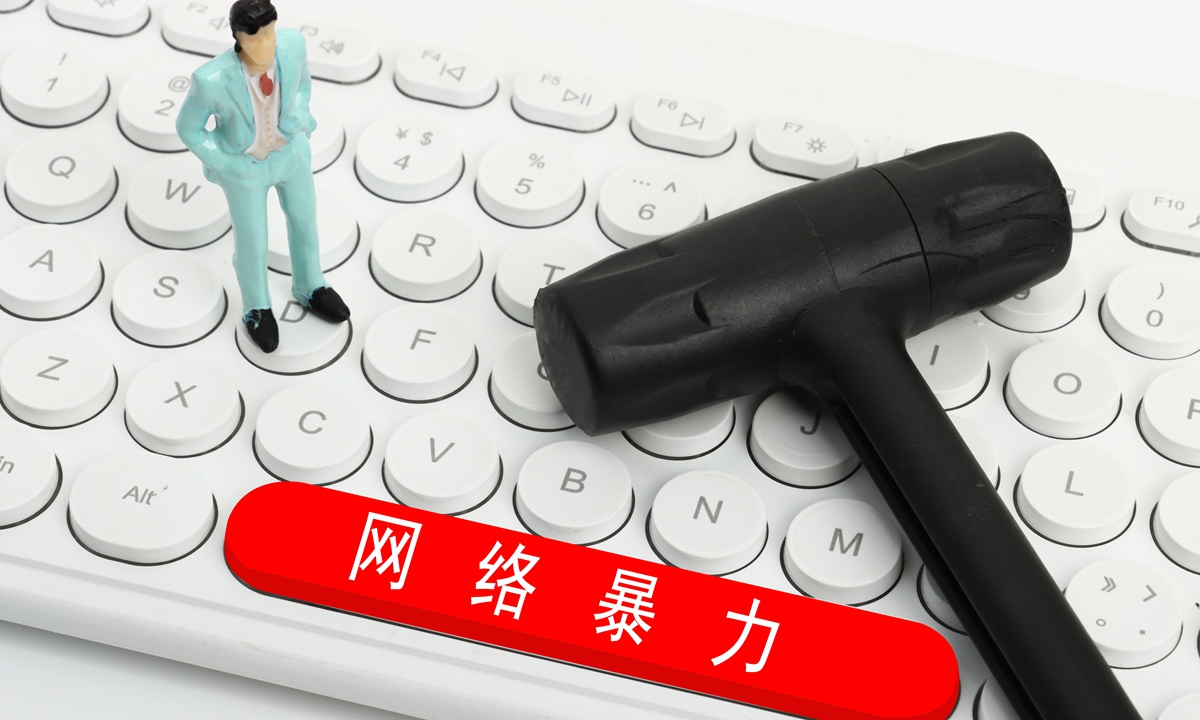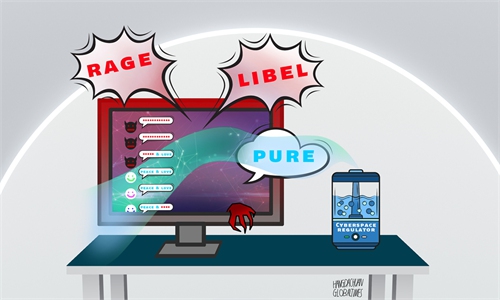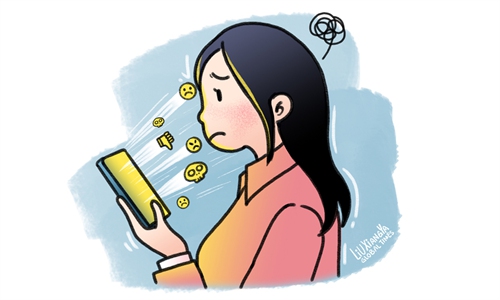Nearly 90 percent of Chinese youth expect public prosecution against severe cyberbullying: survey

cyberviolence Photo:IC
Nearly 90 percent of Chinese youth participants expected public prosecution to be launched against severe online abuse with many calling for the police to assist victims in collecting evidence, according to an online survey, highlighting increasing public concern over the cyberbullying on social order and the rights of individuals.
When surveyed about the difficulties for ordinary people to protect their rights in face of cyberbullying, the 1,000 Chinese youth participants born between 1980 and the generation after 00s pitched the top four obstacles as the identification of the cyberbullyer because of online anonymity (69.6 percent), the high time and financial costs (64.2 percent), the trouble in collecting evidence (55.3 percent), as well as filing a case and starting legal procedures (52.7 percent).
To tackle these difficulties, 88.1 percent of participants called for public prosecution of more severe cases of cyber violence as the spread of online rumors and insults currently belonged to private prosecution, which means the victims needed to collect evidence by themselves which is usually very challenging such as finding out perpetrator on the internet.
Some 68.1 percent of the surveyed youth thus expect the police to provide assistance for victims when it is difficult to collect evidence and 66.1 percent of them hope for enhanced supervision to make sure timely case filing.
The survey was conducted by China Youth Daily following a draft guideline to crack down on cyber violence, which was jointly released for soliciting public opinion till June 25 by China's top court and top prosecutor's office, as well as the Ministry of Public Security.
The draft confirmed the behaviors, societal harm and legal remedies concerning online violence, and proposed targeted solutions to address difficulties in filing cases, gathering evidence, and initiating public prosecutions. These are also among the survey participants' appeals and requests, experts said.
"For example, the draft clarified the protection of vulnerable groups such as minors and disabled individuals, emphasized online platform's responsibility, and confirmed the definitions, societal harm, and legal remedies concerning online violence," according to Li Xiaoman, an associate professor of the School of Journalism and Communication at Wuhan University.
The draft categorized cyberviolence as behaviors including the spread of online rumors, online insults, infringement of personal information, and offline harassment, as well as the derivative behavior of malicious marketing and sensationalism. The draft emphasized heavier punishment on misconducts that targeted minors or disabled individuals, those who employ "internet water army," fabricate "sex-related" topics and use "deepfake" technology for illegal information.
According to the draft, cyber violence behaviors based on its degree of severity may face punishment in accordance to the criminal law.
The draft just worked as a judicial interpretation and a formal anti-cyber violence law could be enacted in the future which will give more specific and comprehensive definition to cyber violence behavior to better crack down on illegal acts hurting public sense of security, Zhu Wei, vice director of the Communication Law Research Center at the China University of Political Science and Law, told the Global Times on Tuesday.
Heated discussions over online abuse have been propelled on Chinese social media recently after several tragedies caused by online attack.
Earlier in June a mother in Wuhan of Central China's Hubei Province, jumped off a building after facing online trolls just because she dressed up after her son got hit and killed by a car. Chinese internet platforms such as Sina and Tencent suspended several accounts that badmouthed the mother.
In January, a 23-year-old woman surnamed Zheng took her own life after months of battling against online abuse by people who attacked her for having pink hair and called her debauched hostess, after she shared a post celebrating her admission to a graduate school alongside her bedridden grandfather.
Besides monitoring on online platforms where rumors and insults initially appear, Zhu suggested strengthening management on the zombie accounts and promotional accounts such as requiring real-name registration and faith-breaking penalty mechanism. He said that these accounts served as the driving force behind a great number of online bullying and attacks by deliberately spreading the fake messages, exaggerating and distorting information despite full awareness of the truth.


